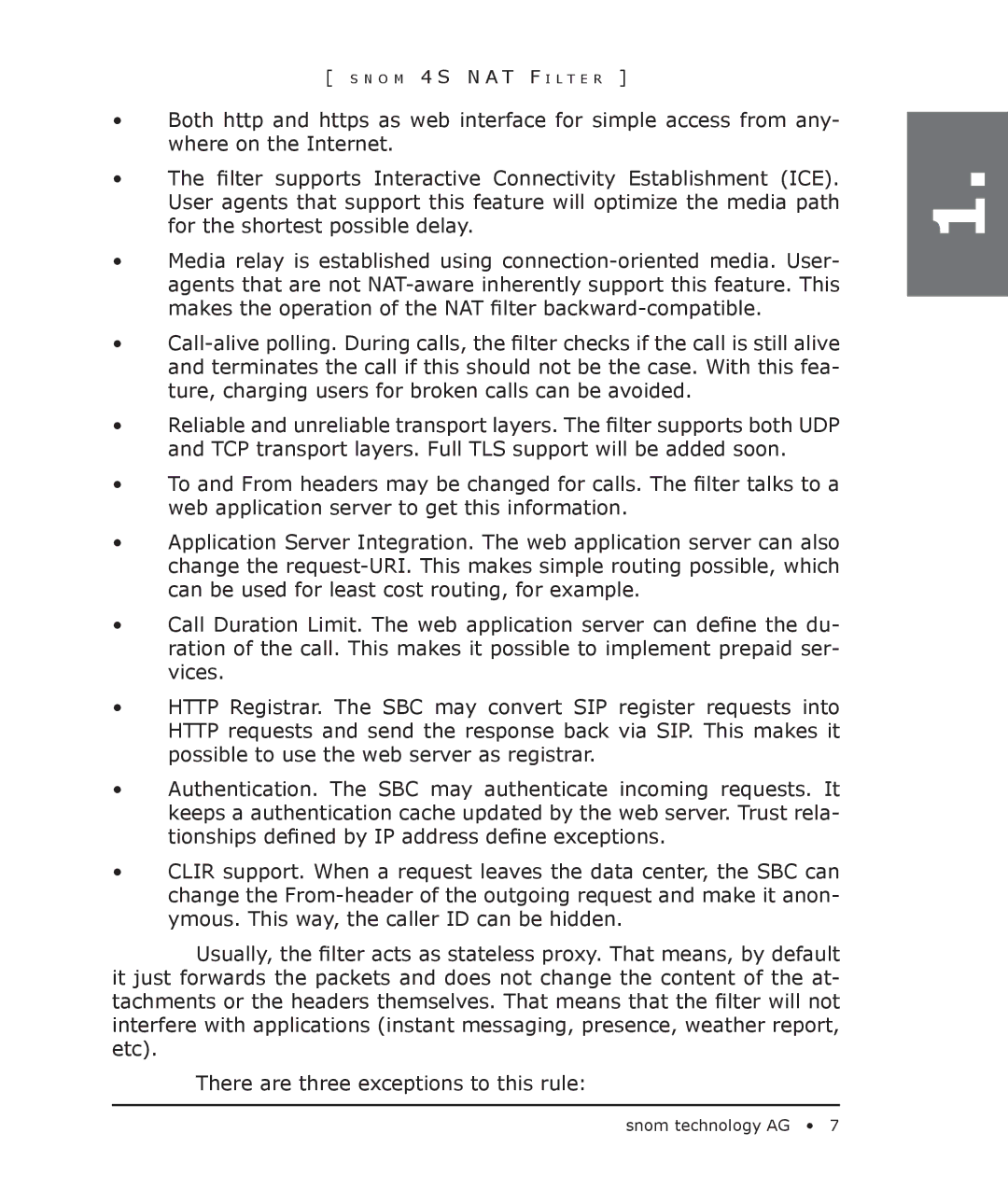
[ S N O M 4 S N A T F I L T E R ]
•Both http and https as web interface for simple access from any- where on the Internet.
•The filter supports Interactive Connectivity Establishment (ICE). User agents that support this feature will optimize the media path for the shortest possible delay.
•Media relay is established using
•
•Reliable and unreliable transport layers. The filter supports both UDP and TCP transport layers. Full TLS support will be added soon.
•To and From headers may be changed for calls. The filter talks to a web application server to get this information.
•Application Server Integration. The web application server can also change the
•Call Duration Limit. The web application server can define the du- ration of the call. This makes it possible to implement prepaid ser- vices.
•HTTP Registrar. The SBC may convert SIP register requests into HTTP requests and send the response back via SIP. This makes it possible to use the web server as registrar.
•Authentication. The SBC may authenticate incoming requests. It keeps a authentication cache updated by the web server. Trust rela- tionships defined by IP address define exceptions.
•CLIR support. When a request leaves the data center, the SBC can change the
Usually, the filter acts as stateless proxy. That means, by default it just forwards the packets and does not change the content of the at- tachments or the headers themselves. That means that the filter will not interfere with applications (instant messaging, presence, weather report, etc).
There are three exceptions to this rule:
1.
